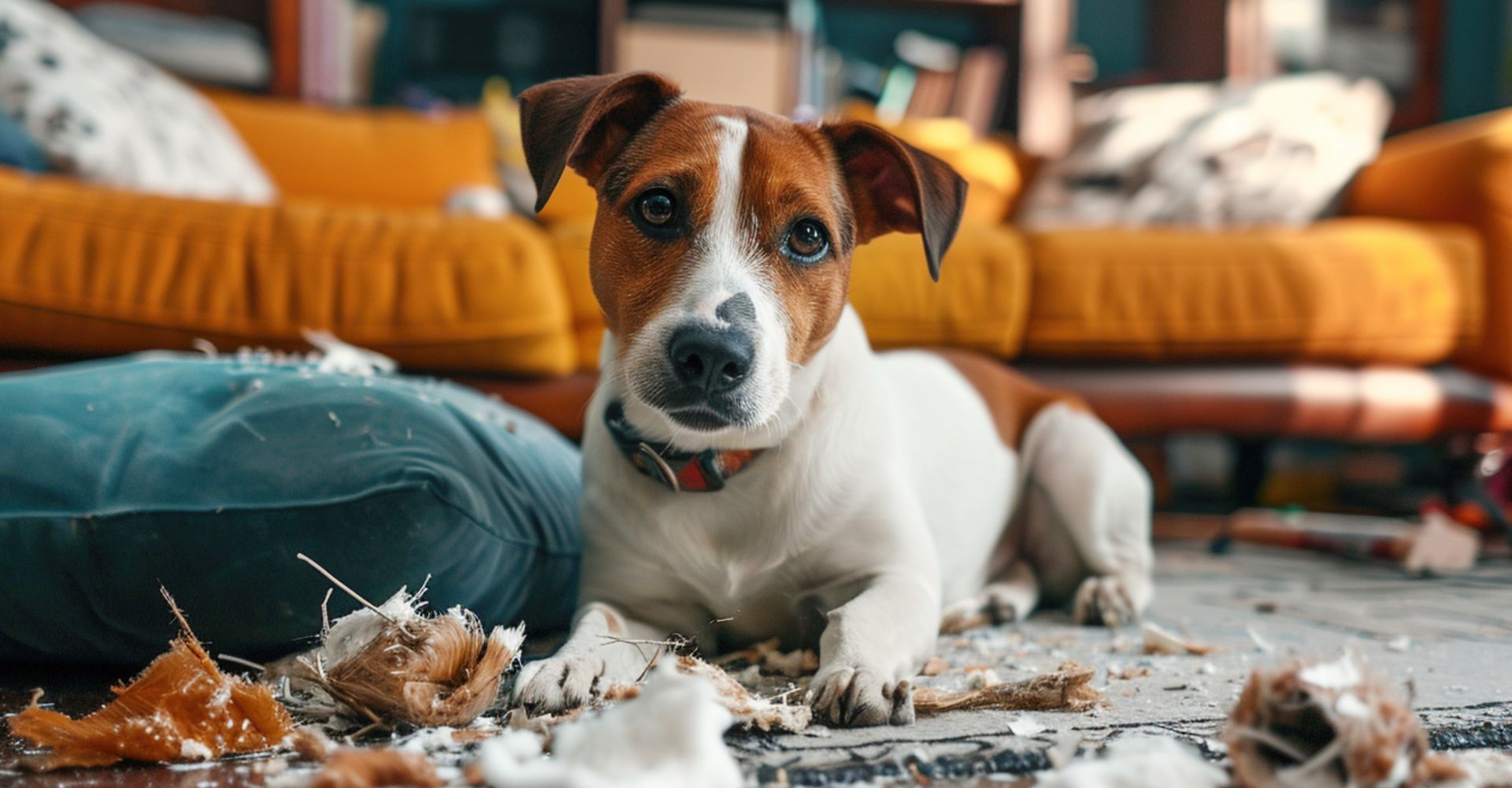Dr Marelize Engelbrecht is a small animal veterinarian at Zwartkop Animal Clinic in Centurion, and she has provided us with her expertise!
What Are the Most Common Signs of Separation Anxiety?
“Excessive vocalisation (barking and howling), destructive behaviour, escaping, and inappropriate elimination. Usually only when people are absent.”
What Typically Causes Separation Anxiety?
“It could be instinctive or learned behaviour. Sometimes, genetics might play a role.”
Are Certain Dog Breeds More Prone to Separation Anxiety Than Others?
“Yes, some breeds are more prone than others, but any breed can experience it. Those most prone are working breeds like German Shepherds, Labradors, and Border Collies; high energy dogs like Vizslas and Australian Shepherds; and then toy breeds like Dachshunds, Miniature Poodles, and Yorkshire Terriers.”
What Steps Can Pet Parents Take to Prevent Separation Anxiety from Developing?
“Establish a consistent daily routine, with meals, playtime, walks, and alone time. Predictability reduces anxiety.
Create a safe and comfortable space for them to retreat and relax.
Practice gradual separations. Start with small steps by leaving them alone for short periods of time.
Practice leaving and returning without making a big deal out of it, to avoid reinforcing the idea that leaving is a stressful event.
Provide opportunities for exercise and add enrichment to their environment.
Stay calm and reassuring.
Don’t show any signs of anxiety form your side when leaving or returning.”
What Are the Treatment Options for Dogs with Severe Separation Anxiety?
“Manage triggers for behaviours, like departure cues.
Adjusting their environment and routine.
Teach new behaviour and reinforce with treats and praise.
Help them to calm down with vet-approved medication.
Pheromonatherapy.
Behavioural expert training.”
Need cover for alternative care? Talk to us about adding Wellness Benefits to your pet’s plan!
Meet Our Vet of the Month
Dr Marelize loves her work and always tries to live her life to the fullest. Her aim is to have a good work-life balance and to be the best vet she could possibly be!
What Inspired You to Become a Vet?
“I have always wanted to become a vet, even as a small child. I was inspired by my grandmother, who wasn’t a vet but might as well have been one. She loved all living things and taught me so much about animals and their care.”
Tell Us About Your Pets!
“I have a lot! Four dogs, one cat, two guinea pigs, two crested geckos, and a horse.”
Any Last Thoughts on the Topic?
“Addressing separation anxiety requires patience, professional guidance, and a commitment to positive reinforcement training.”
Expert Advice on Pet Care
At dotsure.co.za, we love vets and everything they do for our beloved pets! Understanding the signs of separation anxiety in dogs is the first step towards helping your furry friend feel secure and supported, even when you’re not around. And remember, having pet insurance can help cover the costs of vet visits and treatments!



